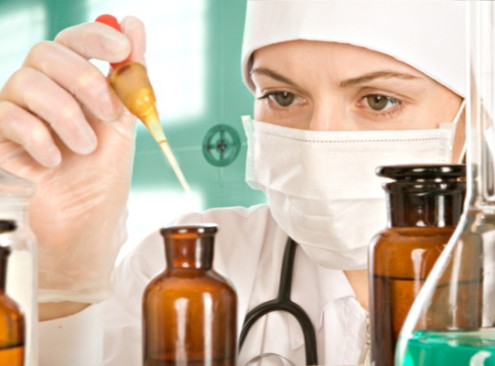© Pint of Science, 2026. All rights reserved.
Dive into the world of tomorrow and discover quantum technology, medicine tailored to your genetics, and limitless clean energy. While it may seem like something out of a sci-fi film, join us to discover how researcher in Lausanne are bringing the future to now!
How not to use a quantum computer
Zoe Holmes
(Assistant Professor at EPFL)
Quantum computing is now a billion dollar industry with governments worldwide investing millions per year. However, experts still cannot quite agree on what a quantum computer is, let what it should look like or what it is good for. Via a guided tour of Twitter arguments and bad memes, I will walk you through some of these issues.
Fusion energy: Harnessing the power of the stars on Earth
Sophie Gorno
(PhD student at EPFL)
Nuclear fusion is the reaction that powers stars, but could also provide a clean, continuous energy source on Earth. This involves fusing hydrogen isotopes to form helium, releasing huge amounts of energy that could be harnessed to generate electricity. But this reaction requires hydrogen gas to be heated to about 100 million degrees, which brings obvious (and not-so-obvious) challenges. For example, how do we contain such a hot substance without melting the container? The answer is magnetic fields. In this talk, we’ll dive into the world of fusion, exploring the breakthroughs and challenges on the way to a future reactor.
Unlocking Precision Medicine: Integrating Liquid Biopsy and Machine Learning for Early Disease Detection
Fahimeh Palizban
(visiting researcher (PhD candidate) at University of Lausanne)
In the landscape of contemporary healthcare, precision medicine stands as a beacon of promise, offering tailored therapeutic interventions to individual patients. A pivotal component of this transformative approach lies in early disease detection, a cornerstone for enhancing patient outcomes. The integration of liquid biopsy methodologies with sophisticated machine learning algorithms represents a groundbreaking stride towards revolutionizing diagnostic practices. Liquid biopsy techniques, characterized by minimally invasive sampling, yield rich genetic insights from circulating biomarkers. Concurrently, machine learning algorithms demonstrate remarkable proficiency in analyzing this data, facilitating the identification of disease signatures often elusive to conventional modalities. Together, these methodologies constitute a formidable alliance, propelling the healthcare continuum towards earlier detection, precise diagnoses, and ultimately, enhanced patient-centered care.

Map data © OpenStreetMap contributors.